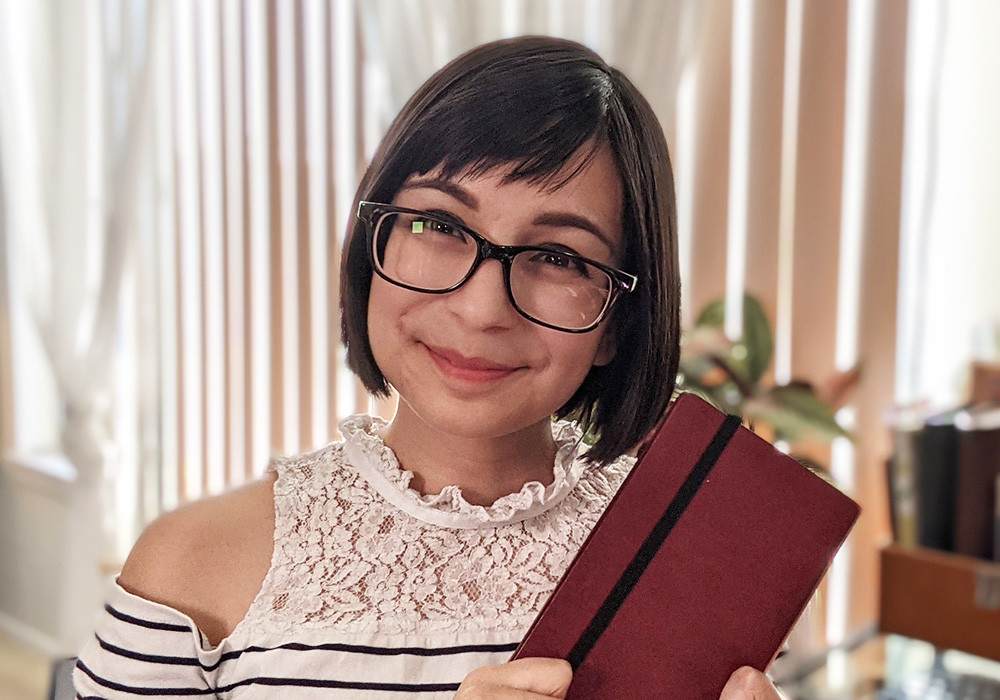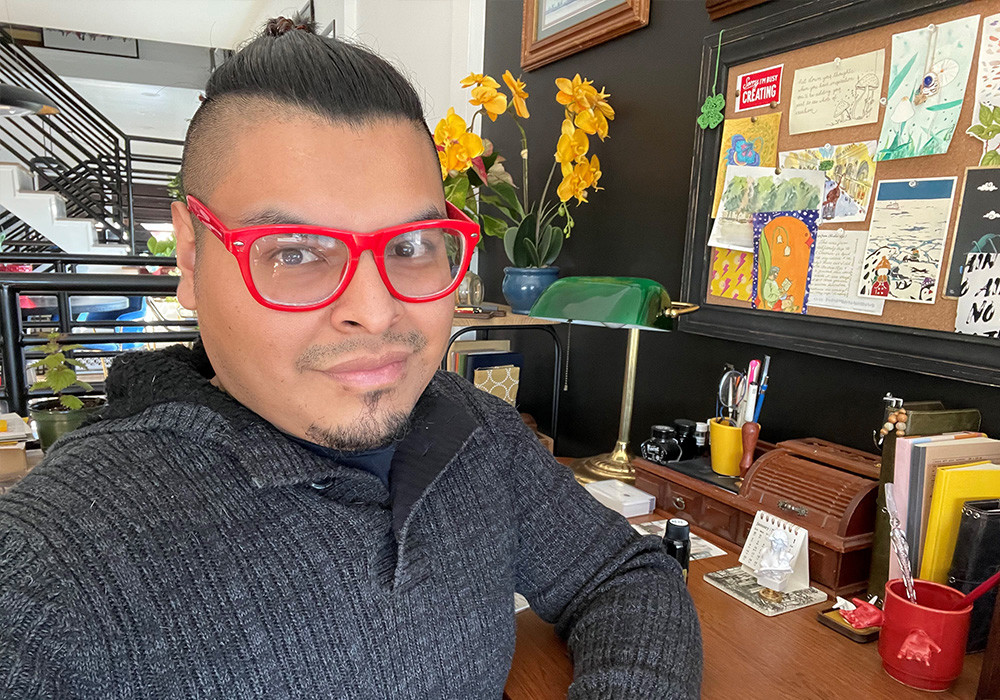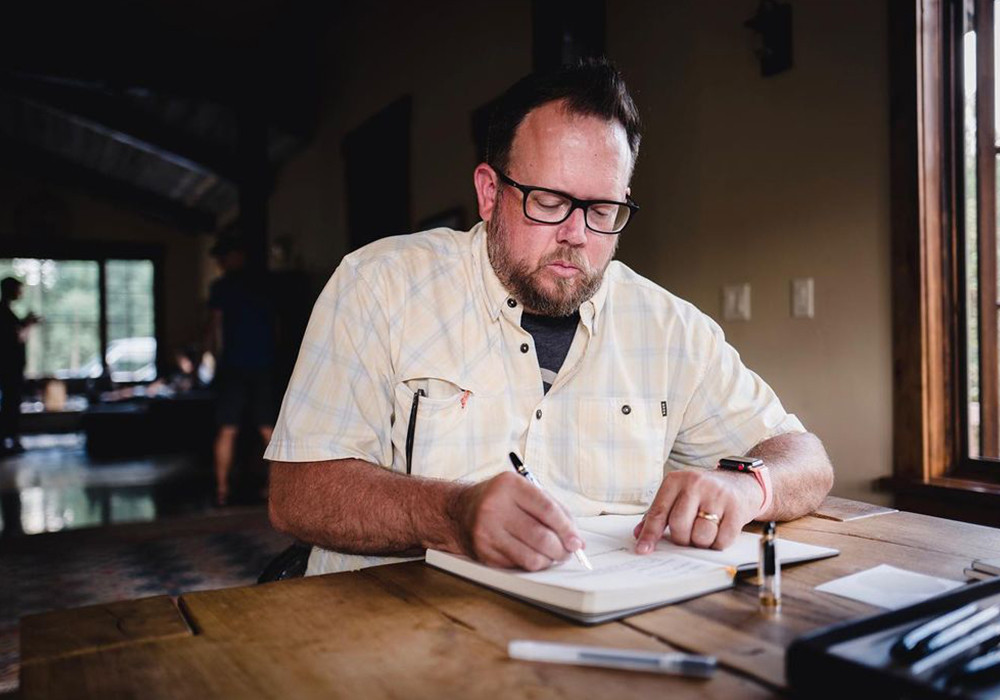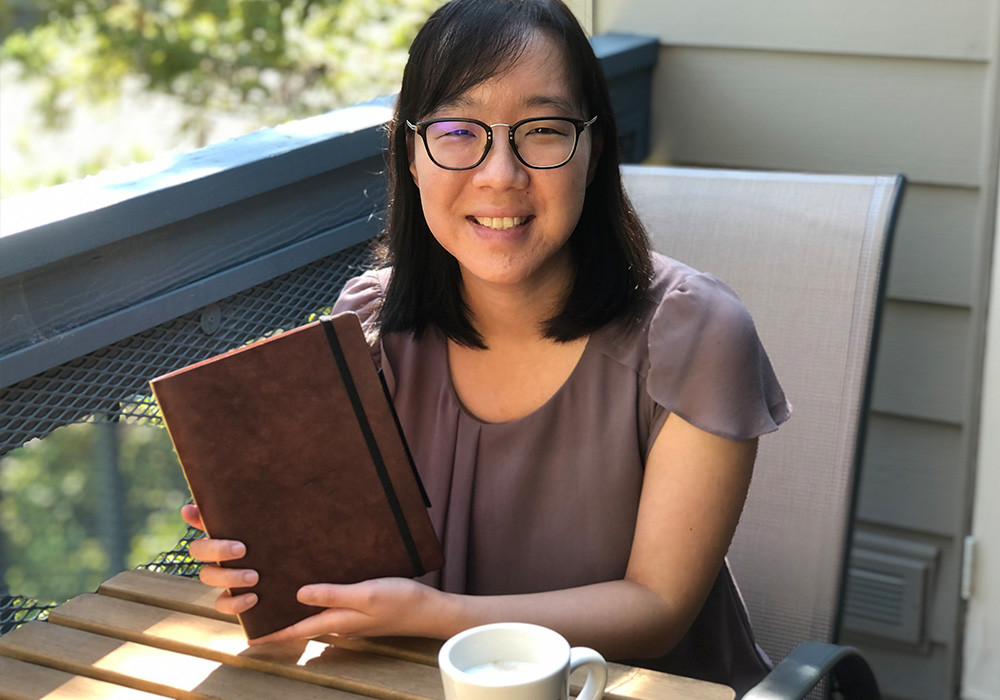PLOTTERs are active in a variety of worlds, and their energy is full of creativity. PLOTTER Magazine highlights change-makers who trace their steps from the past to the present and lead the future in a positive direction. Through their ideas and values, we hope that the stories of PLOTTER, like the tools we create, will provide you with inspiration for your own creativity.
We interview Dr. Phyllis Ying who is a family medicine doctor specializing in geriatrics. While growing up in the United States, she frequently visited her grandparents in Taiwan in the summertime, and her closeness with them was the inspiration for wanting to care for entire families and especially elders.
During these years of learning, she often turned to journal and art to reflect on her experiences, and to honor the patients she met. In this interview, Phyllis shares how she incorporates PLOTTER into her work, and how she finds inspiration through it!
Have you always known you were going to be a doctor? What led you down this path?
Growing up, I’ve always been a creative and curious kid. My parents always encouraged me to be independent and dive deep into areas where I’m interested. That translated into my studies because when I was in college, I changed my majors five times. I was not planning to start as a doctor. I started as a history major, then political science, then ended up in ecology, then neurobiology, and I had been planning on mostly researching in the environmental science field. What was missing was the personal connection. I really like talking to people and fast forward all these years, I’m now working at what I consider is pretty much my dream job. HealthPoint hired me not just as a family doctor providing care, but also as specialty director of geriatric medicine for the entire Health Point organization. It allows me to be creative, I’m developing new programs. I’m trying to make our geriatric care more robust and making our community more connected. It’s very inspiring all the time and I’m never, ever bored at work.
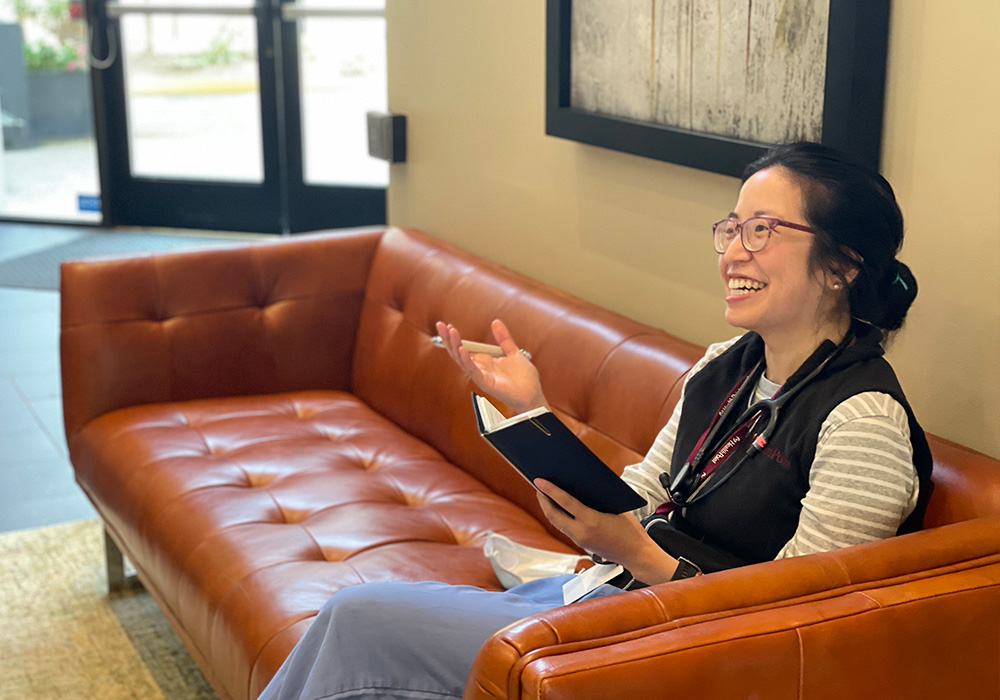
Today, people mostly use digital to manage their tasks, what makes analog so special for you?
To me, digital is not as fast as analog. The time it takes for me to unlock my phone and search for the thing I want, I could’ve already flipped open a notebook and put pen to paper. The problem with digital is that when you have a near-infinite capacity to store anything you want, it ended up creating less efficiency. With the limited space of analog, you will think: “What do I really need?” because you’ll want to save time and eliminate waste.
I think our phones are a good example: A lot of us take photos randomly. However, when we had film, we would be very careful about which picture we would take because you only have 20 shots per roll.
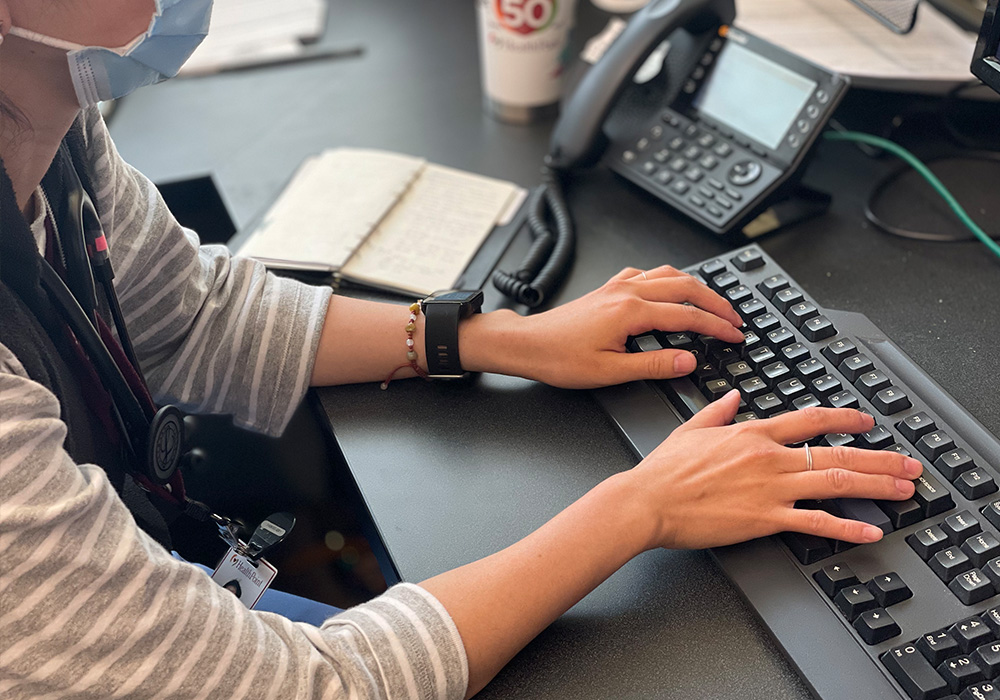
That’s also why you utilized PLOTTER as a reference book, right?
I set up my PLOTTER in the order of what I need to know most quickly. The first section is a weekly To Do List, followed by everything I need for reference. I need to use translator services for half of my visits, so I included all the translator lines and codes for that. I have our clinic staff numbers and directory on here. I keep track of reimbursement, people I need to follow up with, and all the important phone and fax numbers. This is probably my most heavily referenced section. On the phone, I’ll be talking to the patient, and very quickly I’ll need to flip to that tab.
I really like the manifesto at the back. Especially when work gets tough and monotonous, I like to go back to the manifesto and think about what they say. It helps me stay grounded.

What kind of creative things do you write about in your PLOTTER, aside from work things?
The last section of my PLOTTER is my journal, where I write personal reflections about work. Even though other things in my PLOTTER are important, this is the part I look forward to writing the most. Sometimes, as I leave work, there are so many different feelings that come out of my day. Something stressful, sometimes something meaningful. I have this patient that plays the cello. He takes the bus every day to the clinic and brings his cello because he wants to play for us. The other day he brought it to the clinic but forgot to bring the bow! He was so disappointed, but I had to write it down because I thought it was so nice that he likes our clinic so much that he doesn’t want to go to another clinic closer to him. At the end of the day, I might write something down like that.
That’s a great story and something to make you feel rejuvenated in the future when you re-read it.
Exactly! And on this day, I made a brainstorm about how I’m feeling. For example: “The more I sleep, the more focused I’m at work, and the more efficient I am, which means I have less work to bring home.” It helps to just get all of this out on paper, sometimes, and think of these connections. On a clinic day from 8-5, there is no time to stop and think. At the end of the day when I go home, I can reflect and think about what went well today, and what I can do better for tomorrow.
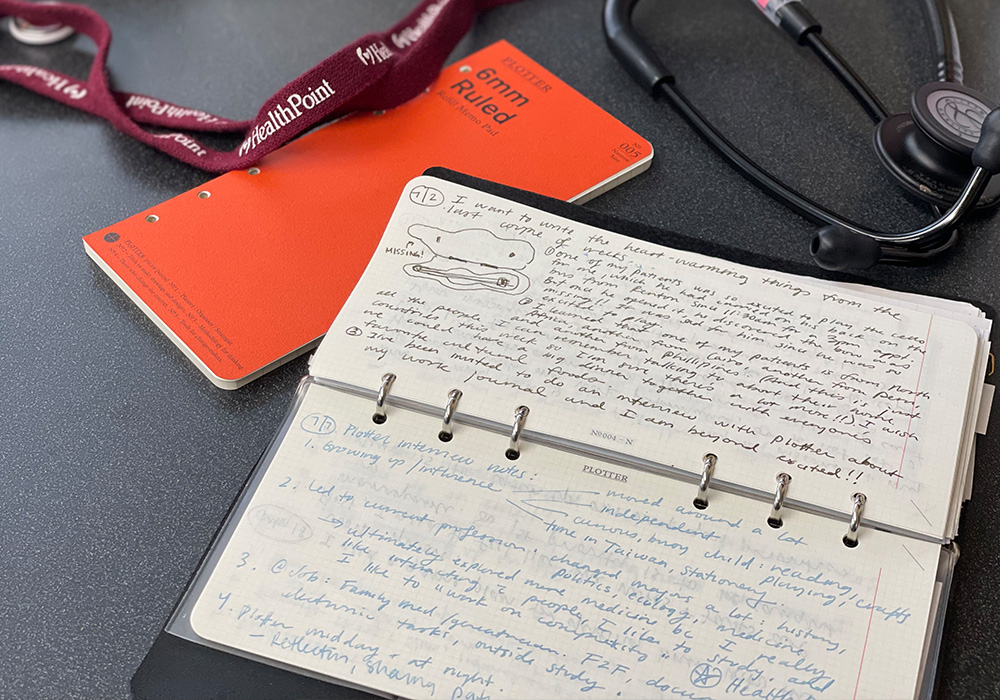
You gave a presentation at a University in Colorado about journaling for people in the caregiving field, can you share with us what that is about?
The title was called “Chronicling as a Caregiver”, and why journaling is an important habit for people in caregiving situations: healthcare providers, nursing, home caregivers. If you allow yourself to keep track of daily things, you can then look back and see the value and the wealth of what you’ve done as a caregiver. Caregiving is very hard because it can be very relentless and often unappreciated. You do a lot for people but sometimes you do not see the outcome you want to see. If you can at least write down what you did every day, that becomes a record of the progress that you’ve made. If you can even go one layer beyond that and do some reflection about how you’re feeling or what’s meaningful to you that day, then you can pull out the nuance of the work that caregivers do.
It’s all about finding meaning in the interactions with your patients.
At the heart of it, the art of medicine is at its core about people and patient stories. I do think writing things down helps bring out some of those stories and helps you find empathy and connection in situations that are more challenging. There are going to be people in everyone’s line of work where you feel challenged by a person or a situation. I think writing things down helps you make the connection with people to move past that.
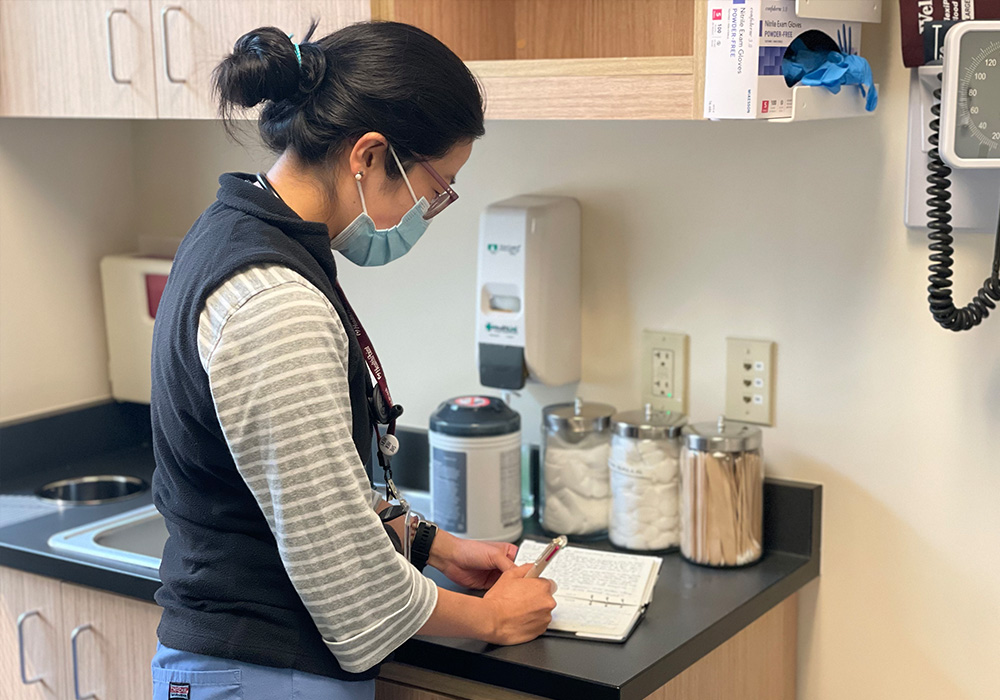
Despite all the creative things you want to write about, you enjoy the slim profile of Narrow size, why is that?
My first thought when I saw the Narrow size was” “this is perfect”. I don’t have big hands, and it’s about my palm’s width. When you hold it, it’s a notebook you want to have with you. There’s something about responsibility and obligation, and you can feel like you don’t want to carry it with you. However, when you hold this, you feel more empowered and ready to go. It has a nice feeling to it. The aesthetic with the simple binding, it’s a physical representation of how I want to be at work. I want to be efficient, available to the patient, adaptable, and that is what this notebook symbolizes.
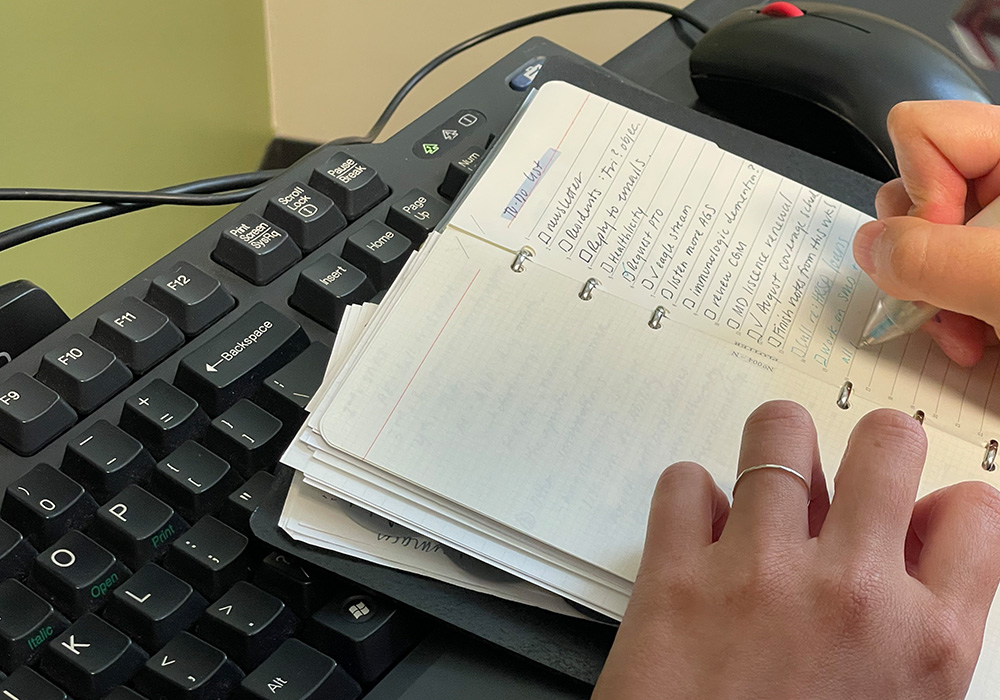
What do you think PLOTTER is to you?
I think of PLOTTER as my legacy. My career is in line with what I want my work legacy to be, and I use PLOTTER to help develop ideas and create that spark. What are your legacy and your life’s work that you want to share? That is where PLOTTER comes in because all the inserts are designed for different types of thinking, it gives you a structured playground to play in. You can use it to brainstorm, organize, remove, or add pages. Whatever your brain wants to go, PLOTTER will adapt to it.
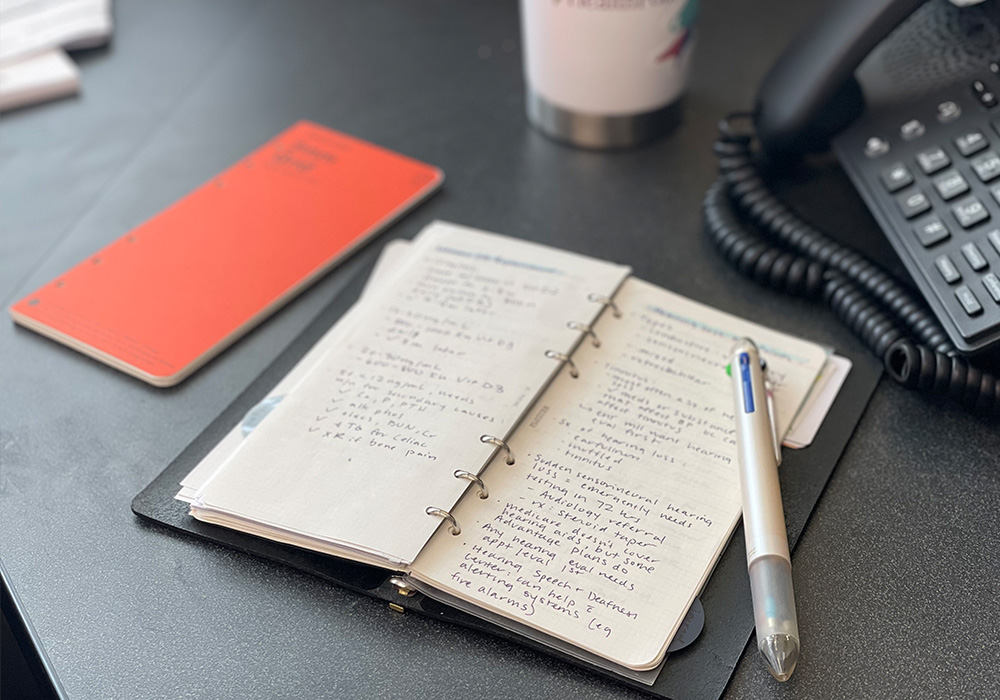
Finally, what kind of person do you think PLOTTER is for?
I think it’s designed for every person in mind, but it speaks to a specific part of each person. The part of you that’s looking forward, planning, strategizing, creative, or coming up with new ideas. Other planners or journals are about documentation and memory keeping—keeping track of the past. PLOTTER is designed for the part of you that’s thinking about the future. I think anybody can use it.
[ Phyllis Ying, MD Family Medicine Doctor ]
Dr. Phyllis Ying currently works at HealthPoint, a community health center in Washington with a mission to provide whole-person integrated care for all patients regardless of insurance or ability to pay. Her hobbies include running, painting, and creative journaling. When she’s not at the clinic, she is enjoying the nature of the Pacific Northwest with her family with a journal in hand.

